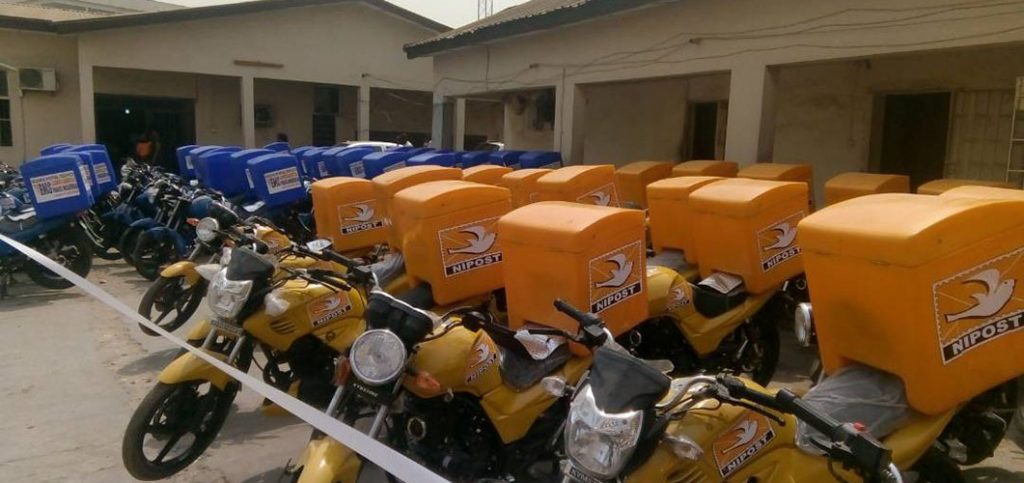The Federal Government has approved new regulations for courier and logistics services in the country. The new guidelines dubbed Courier and Logistics Operations 2020 was signed by the Minister of Communications and Digital Economy, Dr Isa Pantami.
According to the minister, the new regulation will enhance the powers of the Nigerian Postal Service (NIPOST) to steer and safeguard the operations of courier and delivery services in the country.


The new regulation will replace the former regulations which has been in existence since 2001.
Logistics regulation in Nigeria
Logistics companies and dispatch riders have, over the years proven to be a very important sector for Nigeria’s economy. With the proliferation of entrepreneurship and small scale businesses and eCommerce, delivery services became the lifeblood upon which many such businesses thrive.
During the COVID-19 lockdown, it proved indispensable as businesses, individuals and especially health workers took advantage of the services to deliver much-needed food, medicines and other essentials to places they are required.
This promise has led to the establishment of many small scale delivery businesses, many of which qualify as mostly gig workers. Despite their importance, the regulatory landscape is largely unclear with requirements too stiff, especially to the new actors. This often leads to trouble between logistics operators and law enforcement.
Before now, the visible requirement to run a logistics company in the country is the Courier Regulatory Department (CRD) licence. Obtaining the licence costs an initial ₦2 million and an extra cost of about ₦270,000 in application processing and induction. The licence is renewable yearly for a sum of ₦360,000.
For international courier operations the licence cost about ₦10 million


While the CRD licence appears to cover the whole logistics sector, its high price makes it almost impossible for a small logistics company to obtain.
In 2019, NIPOST clamped down on Efex Express Limited, Westwood Courier Service and among other logistics providers for not having the CRD licence.
Similarly, for digital logistics platforms like Kobo360 and GIGL, the regulation is unclear as they also operate an Uber model of logistics services.
A top executive at GIG Logistics explained that the company still has to get the CRD licence and as a tech company, also follow applicable regulations issued by the National Information Technology Development Agency (NITDA) due to absence specific regulation.
Boost for SME Logistics
The provisions for the CRD shows that a logistics company needs high capital to acquire its license and commence operations. This makes it especially difficult for small delivery companies with low working capital to obtain.
However, the new regulation could change all that. In the letter approving the regulation, the minister agreed that the old regulations had no clear guidelines for the SMEs. He added that it was largely focused on the big players in the Courier industry.


With the new guidelines, the minister revealed that six categories of licensing were created, ranging from International operators, Regional State, Municipal or Intra-city, and giving consideration for special Small & Medium Enterprises (SME) Licence.
This means that SMEs will now get their own specialised logistics licences doing away with the nightmare of the CRD licence fee.
NIPOST explained that the categorization will enable the licensees to operate at their levels per time and scope. It also added that it creates room for migration as a licensee has rights to migrate from a particular licence category to another. This means that a logistics company as its business grows can move from SME licence to state licence or higher.
Consumer security
There are often instances where logistics operators take weeks to deliver goods or even disappear totally without a sign of the package. NIPOST has revealed that with the new regulation, every operator irrespective of their category is to be identified with specific addresses and locations that are traceable, before and after engaging their service.
This, according to the regulator, will eliminate the risk posed by dubious operators who may take advantage of poor control to operate illegally. Also, to maintain diligence and trustworthiness, the new regulations require operators to display in their offices’ list of prohibited and restricted items to guide their customers.
In summary, the perusal of the new regulation shows that it is a great improvement on the old one as it addresses some of the underlying puzzles about the regulation of the logistics sector. However, we will have to wait to see how much the new licences will cost and the requirements for obtaining it. One thing is sure though, operating in that sector should be easier.






